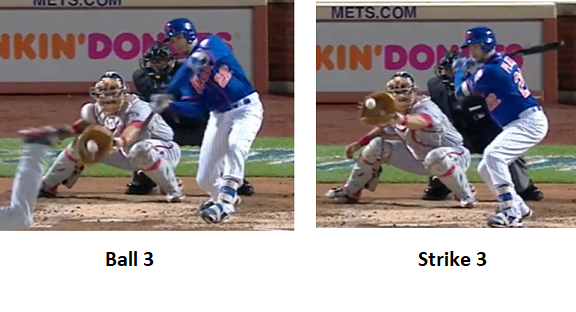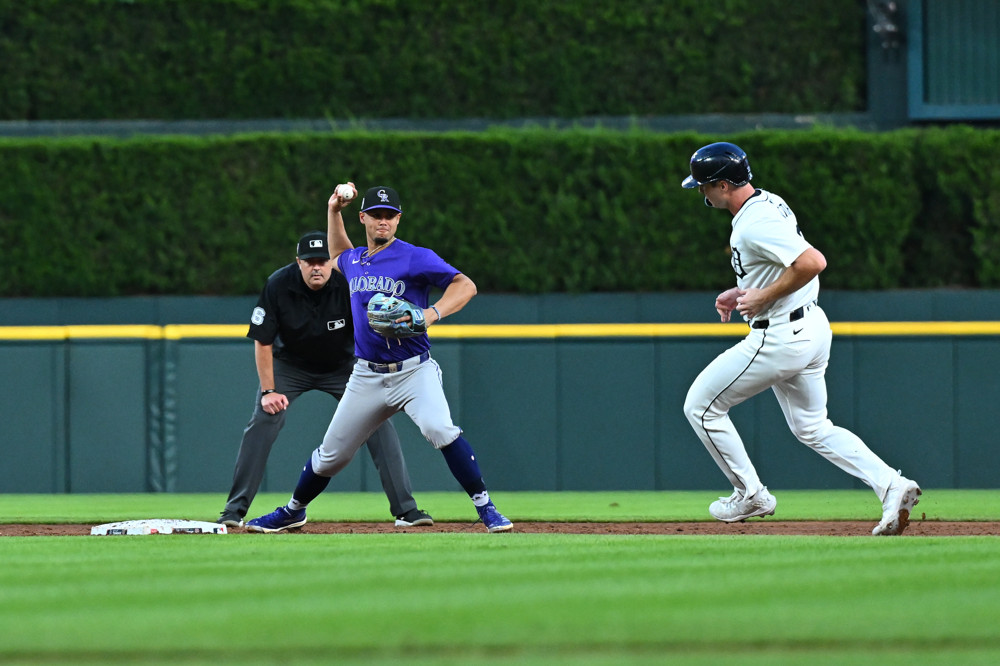BY MARK SIMON
It would be super cool if we could use modern technology to look back at dominant pitching performances. We could further dissect Sandy Koufax’s perfect game in 1965 or something more recent, like Kerry Wood’s 20-strikeout game in 1998.
But the kind of pitching and defensive data that we had available then pales to what we have now. Within our company in particular, we can tell you how often batted balls are turned into outs and how effective a pitcher’s pitches are dating to 2004 for just about any moment in any game.
And we can use a stat like Game Score, which measures starting pitcher effectiveness on a scale that usually ranges from 0 to 100 to pick the game we want to look at. For those unfamiliar, Game Score increases with each out and strikeout recorded and each inning completed, and decreases with walks, hits, and runs allowed.
The best-pitched game of the 21st century falls within our game-tracking window – Max Scherzer’s 17-strikeout, no-walk no-hitter for the Nationals against the Mets on October 3, 2015. That is one of the rare games that exceeded a 100 Game Score, coming in at 104.
Extenuating Circumstances
In reviewing the game, it’s important to note some of the extenuating circumstances, for one the weather, which Baseball-Reference lists at 54 degrees with 28 mile-per-hour winds blowing in from center field. A family member was at this game and texted during it that it was “sooooo cold.”
Those sorts of conditions don’t present themselves often. This is the only one with that wind condition and direction in the last eight years. It’s one of three such games this century (one of which was on a night in Texas with temperatures in the 90s).
Another thing to consider was that this was the second game of a doubleheader on the final Saturday of the season. The Mets had small stakes to play for–they were competing with the Dodgers for home-field advantage in their LDS matchup, but the lineup they put out didn’t show a sense of urgency in that regard.
Yoenis Céspedes, Daniel Murphy, Lucas Duda, and David Wright were not in the starting lineup, though all but Wright would appear in the game.
The No. 2 hitter, Ruben Tejada, and cleanup batter, Michael Cuddyer, had OPS’ around .700. The No. 6 through 8 hitters, Kirk Nieuwenhuis, Kevin Plawecki, and Dilson Herrera, all were below .700. The Mets were willing to put this lineup out against a pitcher who took a no-hitter into the eighth inning of his last start against the Reds.
But ridiculous dominance is still ridiculous dominance, regardless of weather or opposing lineup.
No Time At All
I did something rudimentary just out of curiosity, timing how long each inning lasted. If you have a short-attention span, Scherzer’s pitching performance is perfect for you. The nine Mets’ half-innings lasted a combined 37 minutes and 7 seconds from first pitch to last out. That’s a little over four minutes per half-inning.
Scherzer worked quickly throughout. He completed two half-innings in just under three minutes, with lengths not much longer than the two-minute commercial breaks between innings. Scherzer opened the game by striking out Curtis Granderson in 46 seconds. He ended it by getting Granderson to pop out in a five-pitch at-bat lasting one minute, 22 seconds.
No inning went longer than the sixth (which took 6 minutes, 6 seconds), and that one would have been shorter had Nationals first baseman Clint Robinson been able to scoop third baseman Yunel Escobar’s throw. The error for Escobar on Kevin Plawecki’s ground ball resulted in the Mets’ only baserunner of the game.
| 1st inning | 4 minutes, 16 seconds |
| 2nd inning | 2 minutes, 26 seconds |
| 3rd inning | 4 minutes, 17 seconds |
| 4th inning | 3 minutes, 10 seconds |
| 5th inning | 2 minutes, 38 seconds |
| 6th inning | 6 minutes, 6 seconds |
| 7th inning | 4 minutes, 6 seconds |
| 8th inning | 4 minutes, 24 seconds |
| 9th inning | 5 minutes, 44 seconds |
Dominance
Scherzer began the game with a 92 mph fastball, but the pitch popped repeatedly after that. His fastball averaged about 94 mph in the opening inning, but nearly 96 in the ninth.
For the game, the Mets swung at 40 Scherzer fastballs and missed 19. The 48% miss rate was the second-highest of his career (minimum 30 swings against it), trailing only a 2013 start against the Mets (19-of-39). With two strikes, Mets hitters swung 18 times at his fastball and missed on 12. From the looks of it on the game broadcast, most of those swings were very late.
Scherzer also had the best version of his slider, which completely threw off the Mets’ hitters’ timing. He threw 18 of 23 for strikes, resulting in eight outs, including seven against right-handed hitters. It was his primary out pitch against righties (he got the other five outs against them with fastballs).
A little help
Scherzer went to three balls on only two batters. He got Michael Conforto to ground out on a 3-1 pitch in the first inning and he struck out Kevin Plawecki on a 3-2 pitch in the third. Conforto was ahead 3-0, but Scherzer got a generous strike call from home plate umpire Tony Randazzo on an inside pitch with a 33% strike probability.
Plawecki’s at-bat was an odd one. On 2-2, he took a pitch that appeared to nick the outside corner. Plawecki started to walk back to the dugout. Scherzer began his usual stomp around the mound.
By our calculations, the pitch had an 83% strike probability, but Randazzo called it a ball. This was the only pitch with a greater than 50% strike probability that Randazzo called a ball the entire game.
Then on 3-2, Plawecki took a pitch that was further off the plate, one with a 25% strike probability, but Randazzo rang up strike three. That was one of five instances in which Randazzo called a pitch a strike that had less than a 50% strike probability.

It was bad enough for the Mets that Scherzer was at the top of his game on a cold, windy night with a depleted lineup against him. The home plate umpire wasn’t doing them many favors.
Easy peasy
The Mets put 11 balls into play against Scherzer, most of them meekly.
Their hitters reached base once, as previously mentioned when Escobar’s throw to first was not scooped by Robinson, allowing Plawecki to reach.
Escobar got the error, which resulted in a -.85 plays saved demerit on his register. In other words, a ground ball hit at that speed by a right-handed batter in Plawecki’s speed group (slow) where Escobar fielded it is turned into an out by the third baseman 85% of the time. This turned out to be one of the other 15%.
We should also point out that scooping throws was not Robinson’s forte. He had 9 scooped throws and 5 mishandled scoops for the season, an effectiveness rate of 64%. That ranked third-lowest in the majors (minimum 10 scoop opportunities).
Simply put: You can make a reasonable case that Scherzer should have pitched a perfect game.
We say that because on the 10 balls in play on which the Nationals recorded outs, there weren’t any tough plays from a statistical perspective.
| Result | Probability Play Made |
| 1st– Conforto groundout to 2B | 93% |
| 2nd– Cuddyer flyout to LF | 77% |
| 2nd– Johnson groundout to 1B | 93% |
| 3rd– Harvey groundout to 1B | 100% |
| 4th– Granderson lineout to 2B | 83% |
| 4th– Conforto flyout to LF | 97% |
| 5th– Cuddyer groundout to 2B | 97% |
| 6th– Herrera popout to 2B | 100% |
| 6th– Murphy groundout to 2B | 70% |
| 9th– Granderson popout to 3B | 100% |
The closest the Mets came to a hit was when Murphy hit a ground ball to the left of Dan Uggla. Uggla corralled it and, with the option of retiring Murphy at first or getting a force play at second, got the force out at second place. That play had a 70% chance of being made given the aforementioned parameters. And it was.
Scherzer struck out the next nine hitters after that. He wasn’t taking any more chances with his defense, save for Granderson’s game-ending weak popup, which had a 100% out probability.
Respect
Scherzer’s 17 strikeouts matched the most in a no-hitter (Nolan Ryan also had 17 in one of his 7 no-nos). The 104 Game Score is actually the second-best in a start of 9 innings or fewer, trailing only Wood’s 20-strikeout 105.
The opposition paid its respects to Scherzer’s performance. Mets manager Terry Collins said it succinctly: “He was great. We were bad.”
Mets broadcaster Gary Cohen called it “one of the greatest pitching performance in major league history.”
Seems like a fair claim to us.

